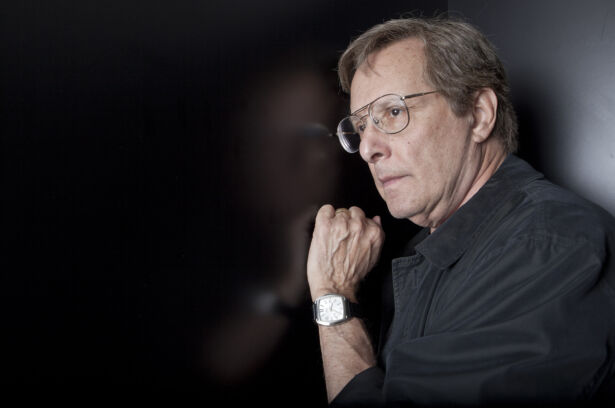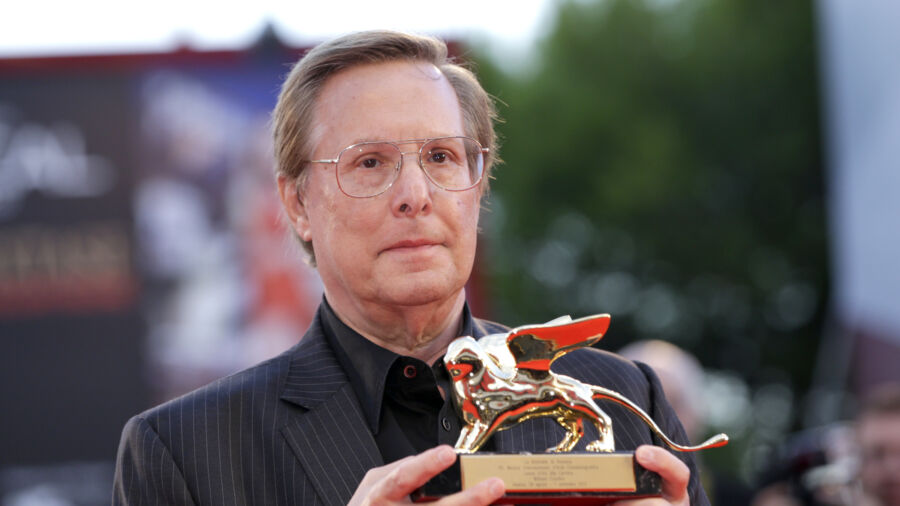LOS ANGELES—William Friedkin, the Oscar winning director who became a top filmmaker in his 30s with the gripping “The French Connection” and the horrifying “The Exorcist” and struggled in the following decades to match his early success has died. He was 87.
Mr. Friedkin, who won the best director Oscar for “The French Connection,” died Monday in Los Angeles, Marcia Franklin, his executive assistant for 24 years, told The Associated Press on behalf of his family and wife, former studio head Sherry Lansing. His son Cedric Friedkin told the AP he died after a long illness.
“He was role model to me and to [my brother] Jack,” Cedric Friedkin said. “He was a massive inspiration.”
“The French Connection,” based on a true story, deals with the efforts of maverick New York City police Detective James “Popeye” Doyle to track down Frenchman Fernando Rey, mastermind of a large drug pipeline funneling heroin into the United States. It contains one of the most thrilling chase scenes ever filmed.
Mr. Doyle, played by Gene Hackman in an Oscar-winning performance, barely misses making the arrest on a subway train, then hurries to his police car to follow the train as it emerges on an elevated railway. He races underneath, dodging cars, trucks and pedestrians, including a woman pushing a baby buggy, before abandoning the pursuit.
The movie also won Academy Awards for best picture, screenplay and film editing and led critics to hail Mr. Friedkin, then just 32, as a leading member of a new generation of filmmakers.
He followed with horror film “The Exorcist,” based on William Peter Blatty’s best-selling novel about a 12-year-old girl, played by Linda Blair, who undergoes a harrowing Roman Catholic exorcism to free her from possession by a demon. “The Exorcist” shocked moviegoers and offended some people.
It received 10 Oscar nominations, including one for Mr. Friedkin as director, and won two, for Mr. Blatty’s script and for sound.
Mr. Friedkin went on to direct movies and TV shows well into the 21st century. But he never again came close to matching the success of those early works.
Other film credits included “To Live and Die in L.A.,” “Cruising,” “Rules of Engagement,” and a TV remake of the classic play and Sidney Lumet movie “12 Angry Men.” Mr. Friedkin also directed episodes for such TV shows as “The Twilight Zone,” “Rebel Highway,” and “CSI: Crime Scene Investigation.”

Born in Chicago on Aug. 29, 1939, he began working in local TV productions as a teenager. By age 16 he was directing live shows.
“My main influence was dramatic radio when I was a kid,” he said in a 2001 interview. “I remember listening to it in the dark, Everything was left to the imagination. It was just sound. I think of the sounds first and then the images.”
He moved from live shows to documentaries, making “The People Versus Paul Crump,” in 1962. It was the story of a prison inmate who rehabilitates himself on death row after being sentenced for the murder of a guard during a botched robbery at a Chicago food plant.
Producer David Wolper was so impressed with it that he brought Mr. Friedkin to Hollywood to direct network TV shows.
After working on such shows as “The Bold Ones,” “The Alfred Hitchcock Hour,” and the documentary “The Thin Blue Line,” Friedkin landed his first film, 1967’s “Good Times.” It was a lighthearted musical romp headlined by the pop duo Sonny and Cher in what would be their only movie appearance together.
He followed that with “The Night They Raided Minsky’s,” about backstage life at a burlesque theater, and “The Birthday Party,” from a Harold Pinter play.
Mr. Friedkin had three brief marriages in the 1970s and 1980s, to French actress Jeanne Moreau; British actress Lesley-Anne Down, with whom he had a son; and longtime Los Angeles TV news anchor Kelly Lange. In 1991 he married Paramount studio executive Ms. Lansing.
In recent years, Mr. Friedkin was often called on to reflect on his career around the 50th anniversaries of his classics and was always candid. He also wrote a memoir, “The Friedkin Connection,” which came out in 2012. And he wasn’t done working yet: A new film, “The Caine Mutiny Court-Martial,” starring Kiefer Sutherland, is set to premiere at the Venice Film Festival next month.
Thinking back to the iconic car chase sequence in “The French Connection,” Mr. Friedkin told NBC News in 2021 that it was legitimately life-threatening and that he’d never do it again.
“Everything you see, we actually did. There was no CGI then. There was no way to fake it. I just put the pedal to the metal, and we went 90 miles an hour in city traffic,” he said. “The fact that nobody got hurt is a miracle. The fact that I didn’t get killed, the fact that some of the crew members didn’t get hurt or killed. That’s a chance I would never take again. I was young and I didn’t give [expletive]. I just went out and did it. I set out to make a great chase scene and I didn’t care about the consequences, and now I do.”


